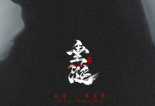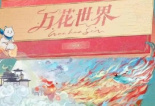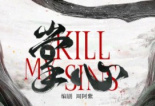Episode 28
Emperor JiajingWith the poetic feeling of walking to a water-poor place and sitting and watching the clouds rise, Chen Hong was hinted at asking Yun Niang. This action seemed to herald the coming storm behind the clouds.
Gao Hanwen blamed all his frustrations and losses on Yun Niang in front of him.However, Yun Niang knew very well that the contempt in Gao Hanwen's heart did not come from her, but from his pain and helplessness at not realizing his ambition.She hated that Gao Hanwen, like Shen Yishi, lacked Ji Kang's otherworldly mind.On the occasion of parting, Yun Niang gave Gao Hanwen the guqin left by Shen Yishi. This guqin symbolized Shen Yishi's spiritual sustenance and also represented Yun Niang's expectations and blessings for Gao Hanwen.

Lu Fang was recalled to the capital, and Emperor Jiajing expressed strong dissatisfaction with his private visit to Yan Song and Xu Jie.He used the allusion of Emperor Taizu Zhu Yuanzhang of the Ming Dynasty to warn Lu Fang, suggesting that his move may trigger a conflict between the two major power groups.Emperor Jiajing gave Hai Rui's retrial confession to Lu Fang to read, and then ordered it to be sealed again to show that he had not read it.He conveyed a clear intention to Lu Fang: Except for the slaves headed by Zheng Michang, He Maocai, Monk Yi, the needlework bureau, and the scarf and hat bureau, no one else should be killed or arrested.This was a wise decision made by Emperor Jiajing in order to stabilize people's hearts and ease the situation in the court.
During the Zhongyuan Dynasty, Emperor Jiajing, Lu Fang, Xu Jie, and Yan Song wore incense crowns and worshiped heaven in the palace.In front of Yan Song and Xu Jie, Emperor Jiajing burned the resealed Hai Rui's confession.









